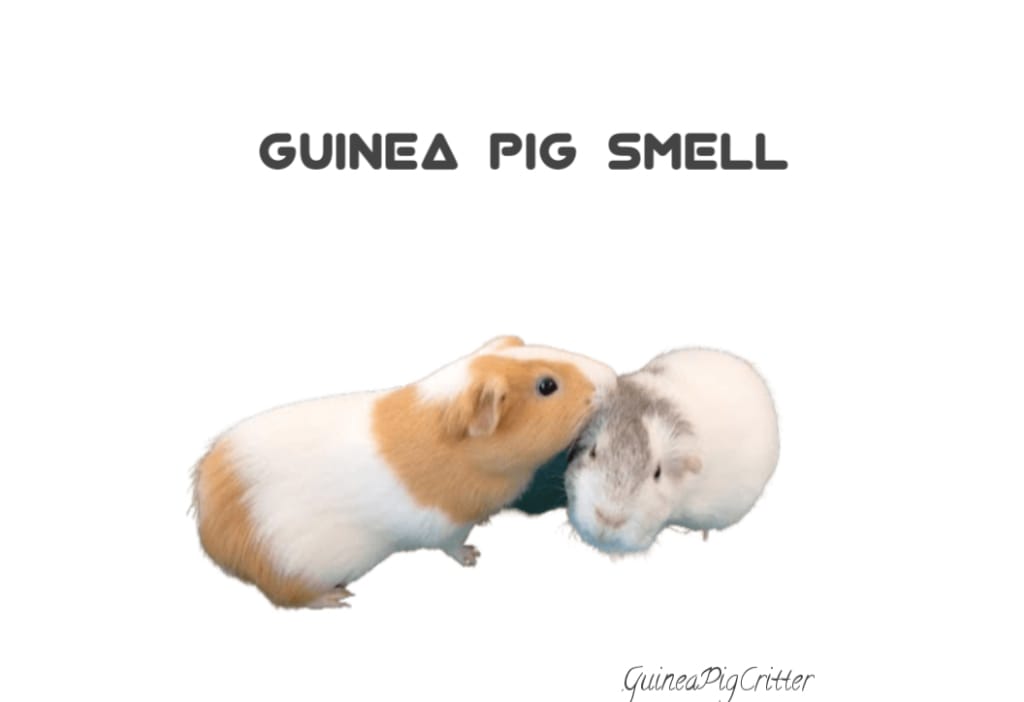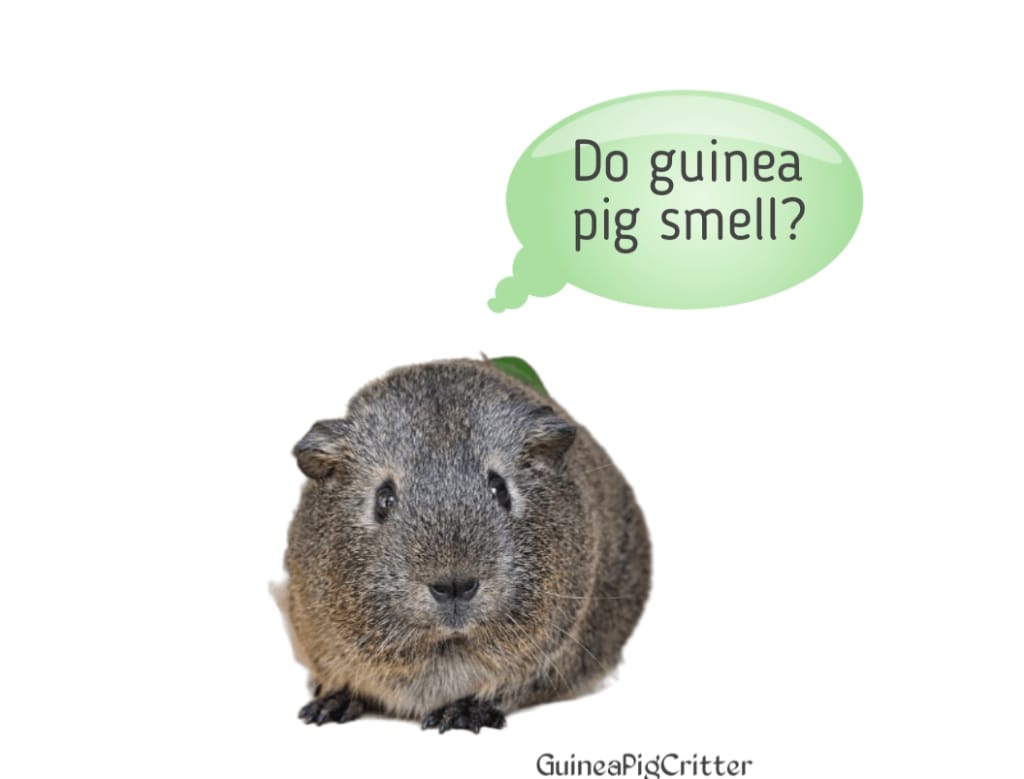Guinea pigs have also been called cavies and are loved for their gentle temperaments and charming habits. As is the case with any pet, many prospective owners tend to have some issues with their upkeep, among which is odor. Although guinea pigs are said to be among the least odorous pets, there is still a need to avoid any possible aspects which can lead to such odor, and also how to control it.
Understand Guinea Pig Odors
Normal Body Odor
All living creatures, including guinea pigs, have body fluids that have defined biological functions. This secretion tends to be less offensive at its best and could be best described as musk or incense. Details such as dietary differences, genetic disposition or health of individual guinea pigs affect this smell and as a result some pigs exude more of it than others. Most guinea pigs have a built body odor which is noticeable at all times but it can be overbearing if the animal is poorly taken care of.
Common Odor Sources
Cage Cleanliness: Most odors from a guinea pig can be well controlled if the housing of the guinea pig is well cared for and kept free of waste. Waste that consists of urine and fecal matter is cleaned out infrequently, in which case awful odors would result. Beyond the sordidness of the waste, its volume build-up also affects the quality of the air that surrounds the guinea pig.
Bedding Materials: Selecting the most appropriate bedding is crucial for odor management. Some bedding such as cedar shavings is not recommended as it can be moisture retentive and emits fragrant oils that aggravates the odors more. Some of the better options include:
Aspen Shavings: These are highly absorbent and less aggressive in terms of odor productions.
Paper Based Bedding: This kind of bedding is very good in moisture absorption and odor control as a whole.
Fleece Liners: Fleece liners which are used are washable and thus control waste odor as the waste is easily removed.
What Makes Guinea Pigs Smell
Diet
The diet of guinea pigs is also a determining factor on the extent of their smell. Some foods which are sweetened and rich in fats or are not part of the normal standard diet could cause them to develop a stronger smell. Some of the important dietary issues include:
Hay: A sizeable proportion of a guinea pig’s diet should consist of good quality hay. This is needed for digestive purposes and also contributes to reduction of their wastes smells. Alfalfa hay is for the young ages while timothy hay is for the adult guinea pigs.
Fresh Vegetables: Vegetables are appropriate to be taken as a diet. Quite a number of such such drink vegetable are very wet inside hence playing a role in excess waste production and subsequent smell.
Pellets: Guinea pig pellets have to be high in Vitamin C content and low fats. Overfeeding the pellets may also cause some obesity and even more considerable excretion leading to worse smells.
Health Problems
There are few health problems that most of the time can lead to bad smells:
Urinary Tract Infection (UTI). This is associated with a foul smelling urine caused by urinary tract infections sometimes. Some of the symptoms of suffering from it include frequent urination, pain upon urination or blood in the urine. Regular veterinary visits aid in early detection of UTIs.
Dental Problems: Since guinea pigs do not have chewing muscles, this can create an environment for overgrown teeth and abscess that may lead to bad breath. It is important to maintain the dental health of guinea pigs to prevent diseases and unpleasant smells.
Skin Problems: There may be other odorous complications around such as skin fungus and infections stink. Fungal infections such as ringworm and some mites can destroy the skin which leads to odors.
Controlling and Minimizing Odor
Cleaning and Hygiene
Proper usage of cleaning methods is important in controlling the guinea pig odors:
Daily Spot Cleaning: All soiled bedding and visible waste should be removed every day. These prevent odor accumulation tendency and ensure that the surroundings are clean and livable.
Weekly Deep Cleaning: Schedule a deep cleaning twice-weekly
Weekly deep cleaning is required to ensure every corner of the cage is effectively cleaned every week. This entails taking off all bedding, washing the cages with a pet disinfectant, and ensuring that all pets’ belongings are cleaned and dried well.
Proper ventilation: Make sure that the guinea pigs living quarters are well ventilated and aired. Proper airflow serves to eliminate smells and improve the quality of air.
Diet and Health Care
Having a well-balanced diet and a routine of pet health insurance does minimize odor to a great extent.
Balanced Diet: Feed them with assorted green vegetables and high-quality hay and pellets. Do not feed sweet treats to your pets and do not overfeed them as well. Make sure they have sufficient fresh water in order to minimize the smell of waste.
Regular Vet visits: It is important that you schedule regular checkups so that your guinea pig is monitored for good health. It is better to seek treatment for any signs of an illness quickly so as to avoid foul smells that may arise from them. Routine dental and health examinations are very important.
Environmental Considerations
Altering the guinea pig’s environment would also help control odor:
Cage Placement: Ensure that, the cage is sited in a room free of Draught and Direct Sunlight, having good air movement for the reasons of smell control and proper comfort for the guinea pig pet. Proper ventilation reduces the odor and makes the guinea pig comfortable.
Odor Control Mechanisms: You may want to try innovative odor control mechanisms including the use of activated charcoal or baking soda around the cage. These things may mask the odors that are present. Just be careful, use proper products that are safe, and do not put those inside the cage.
A Comparative Study of Odors in Guinea Pigs and Other Domesticated Animals

When looking at it in terms of odor, guinea pigs fall on the low end in comparison to other small pets:
Guinea Pigs vs. Hamsters: Hamster’ odor may be more pronounced due to, in part, whoring and stuffing food inside the shavings, which also promote clotting of stinky beds. In such cases, regular cleaning and good diet will help reduce hygiene issues.
Guinea Pigs vs. Rabbits: In their own right, rabbits can have offensive odors when the litter and the litter boxes are not cleaned out on a regular basis. Rabbits like guinea pigs produce a smell too which can be the source of some disturbance but can be controlled by daily maintenance.
Guinea Pigs vs. Ferrets: Ferrets are generally stinky due to their very strong odor, which is quite common among domestic pets. With respect to odors, guinea pigs have been found to have slightly skimpier stench in comparison to ferrets.
Conclusion
On a conclusive note, guinea pigs do make some smell although it is not so troublesome when looked after properly. It is possible to beat the dead rat smell by learning about guinea student’s diet and health and cleaning their cages actually owners can do just that and keep unpleasant odors to a minimum. Clean cage, proper nutrition, and regular medical supervision are also important when wanting a guinea pig as a pet as they should not be too much of a hassle.


